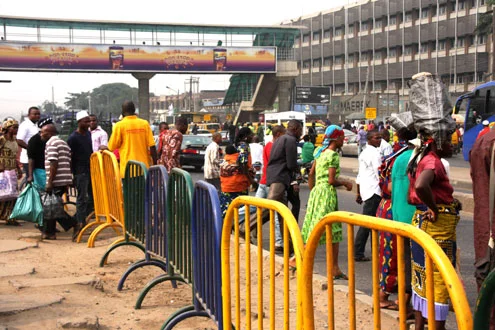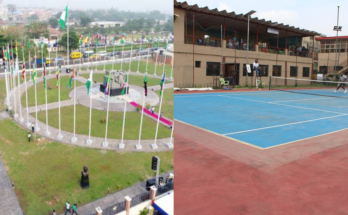By Oluwayanmife Ayobami
On the busy streets of Nigeria, people cross the road wherever they can, instead of using designated crossings. This is called jaywalking.
However, this quick way of getting across the road has turned out to be quite costly, with the government imposing heavy fines on those who do it.
Jaywalking shouldn’t be an offence
IkejaBird interviewed Amaka, a 22-year-old university student, who is currently in her final year. She explained that as a student, time is very important and jaywalking seems like the quickest way to get across the road. She doesn’t believe it should be an offence.
“I have heard about the fines, but I have never been caught by any official. I feel like jaywalking shouldn’t be an offence. What are the effects of it?”
I slept in prison for jaywalking
But this isn’t the case for Mr Okafor John, a 35-year-old real estate agent. He has be fined for crossing at the wrong spot. He explained that at a time when he was taking a client to survey land, he committed the offence and a KAI officer took him and his client.
He was in prison for about a day, until the next day, and they finally agreed that he should pay the fine of about ten thousand naira. “Since that day, I have never done such a thing again even if government agents are not watching.”
Jaywalking was not always an offence
According to Mrs. Olorunsogo, a 65-year-old retired teacher, jaywalking has not always been an offence, it was just a normal part of getting around the city then. But now, with the strict rules and high fines, it’s become a real concern for older people.
“We may not be as agile as the young people, and crossing at the particular spots can be physically challenging for us.”
219 people were arrested for jaywalking
Recently, the Lagos government announced that in March, they caught and took legal action against 219 individuals for crossing busy roads in various areas of the state.
Lukman Ajayi, spokesperson for Lagos State Environmental Sanitation Corps revealed that the arrests occurred at Oshodi, Dopemu, Ikeja, Ikorodu Road, Ketu, and Ojota.
Ajayi emphasized that such actions would continue unless people followed safety rules to prevent accidents. He wondered why individuals, including parents, would risk crossing a 10-lane expressway instead of using nearby pedestrian bridges. Ajayi urged residents, especially parents, to advise their children against crossing busy roads and assured that the agency would enforce laws to protect lives.
Legal Perspective of Jaywalking
Recently, the Federal Capital Territory Administration (FCTA) imposed new fines for certain infractions, including jaywalking. Jaywalking according to the law, is defined as pedestrians crossing a road or street at a location other than a designated crossing point, and has been made an offence under the FCTA’s new policy. The penalty for jaywalking is set at ₦20,000.
The government has the authority to designate certain areas as “no crossing” zones and impose fines for non-compliance. These are usually done to maintain order and safety on public roads and streets.
The rationale behind criminalizing jaywalking is to promote safer pedestrian behaviour and reduce traffic accidents. By channelling pedestrians to designated crossing points, the authorities aim to organize the flow of traffic and protect both drivers and walkers.








